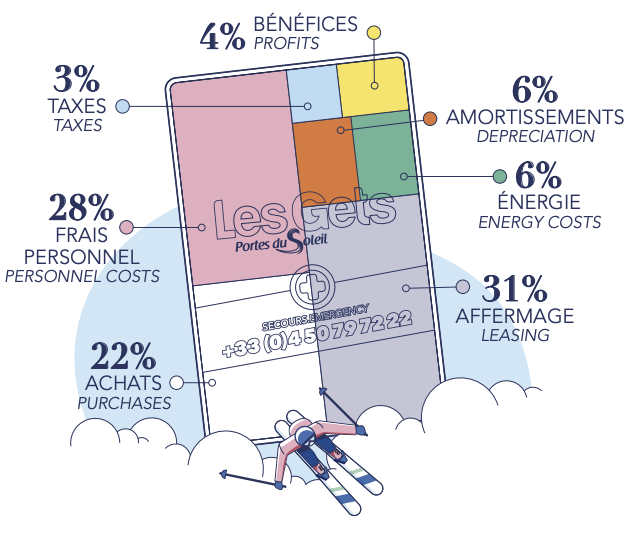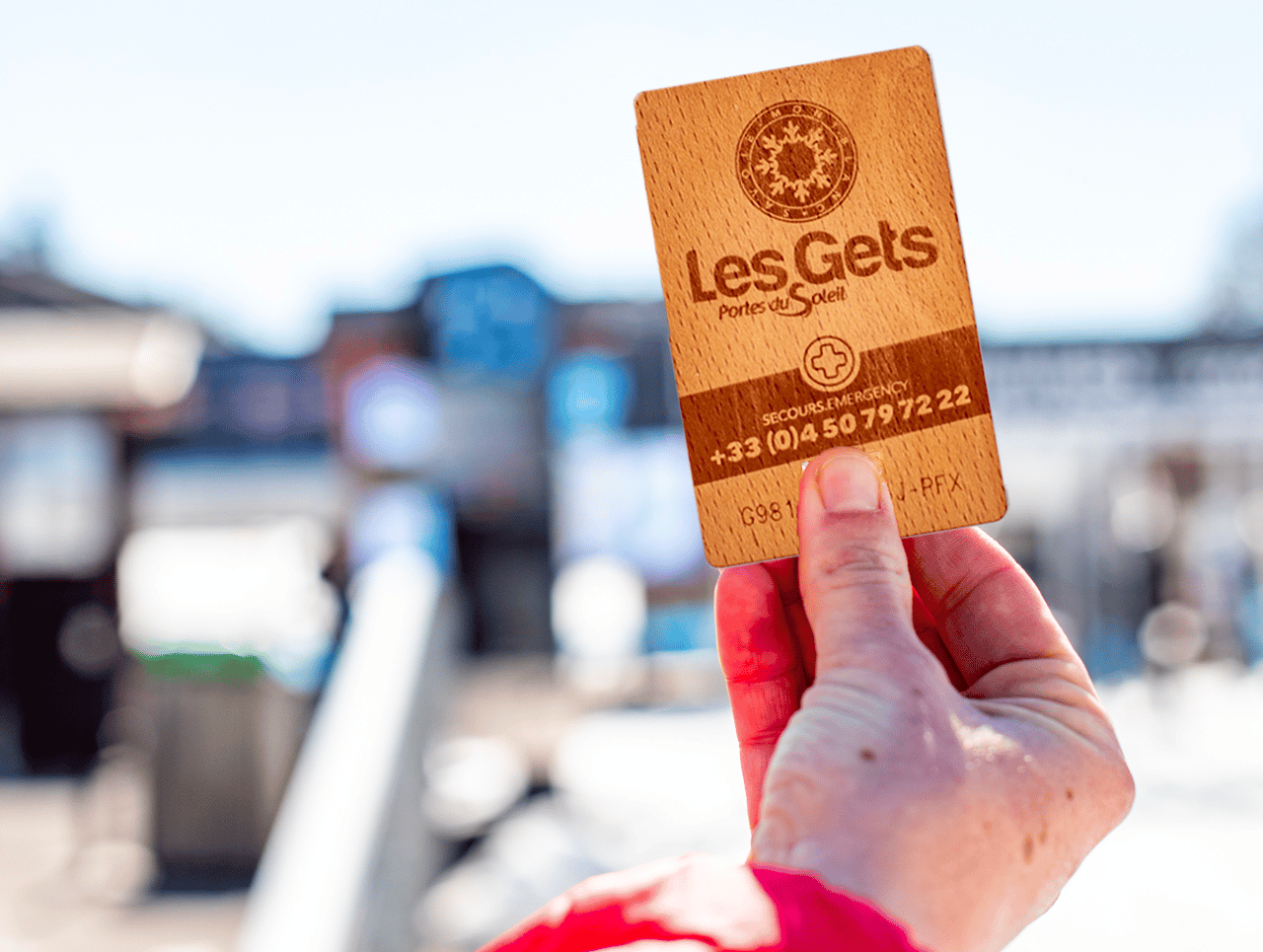The pass is like a magical key for skiers and the price covers much more than just access to the ski area, including energy costs, personnel, leasing and purchasing.
Breakdown of the actual costs of a Les Gets ski pass.
Ski pass prices are calculated by adding together the fixed and variable costs borne by the Les Gets ski area for the operation, maintenance and provision of the slopes.
Of the €46 for a Les Gets adult day pass, the biggest share, almost a third of the price, covers the cost of leasing, i.e. the public service delegation contract for operating the ski lifts and the whole ski area. Then come the personnel costs, representing 28% of the total price.
At Sagets, 230 people across 53 different professions work day and night during the peak winter season to keep the ski area running and ensure the wide range of activities can take place. They include groomers, chefs, electricians, gardeners, snow-makers, trackers, ski lift operators, patrollers and many more. The purchasing cost of the actual ski pass itself represents 22% of the price, or €9 of the €46 for a day pass. Added to that are the obligatory additional costs including the increasing energy costs, depreciation and taxes.

So as you can see, hiding behind the cost of a ski pass there’s a ski area and the men and women working there every day to make this experience possible and to offer you the greatest of holidays.
EXCLUSIVE: the wooden ski pass, the first of its kind in France’s ski resorts – and “made in Les Gets” to (ski)boot!
Plastic’s not fantastic. To limit its environmental impact, the Les Gets ski area last winter launched a limited edition eco-friendly ski pass made from beechwood. In credit card format, so that you can easily slip it into your pocket, and with an RFID chip for lift access, the new wooden card is rechargeable, has all the same features of a traditional ski pass and can be used in all Les Portes du Soleil resorts. All conventional ski passes are set to be replaced by the wooden ski pass, which will be 100% developed in Europe and made locally, before going fully digital, thanks to Bluetooth technology and smartphone linkage.

